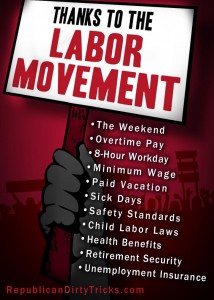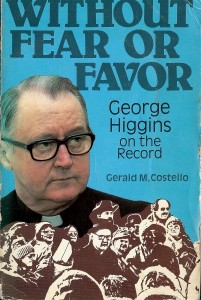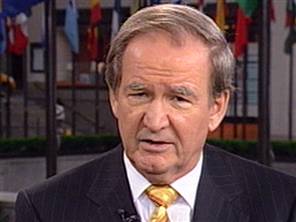Concluding Commentary On Mark Levin’s Liberty Amendments (part 5)
Links to Part 1, Part 2, Part 3, Part 4
Last month, the Mount Vernon Assembly met at George Washington’s home in Virginia to begin the planning process for an Article V Convention. Attending were some 100 legislators from 32 States. Mark R. Levin’s bestselling book, The Liberty Amendments (Simon & Schuster, 2013), inspired many of the attendees. However, it was “invitation only.” None but State solons were invited.
And so, is a “Convention for proposing Amendments” – as authorized in Article V of the U.S. Constitution – on the horizon? On the assumption that the answer to this question is yes, Levin’s book provides good fodder for debate on what issues the Convention’s agenda should address. To be sure, such a Convention will have implications, either proactively or by neglect, for our moral and religious lives as Americans!
Much as we see “Catholic” politicians embrace the leftist cultural itinerary, including abortion, same-sex-marriage, and secularization of the public square; so do our confreres on the right sometimes buy into the neoconservative ideology of free market capitalism at home, and imperialism abroad.
On one side of this left-right divide are a plenitude of politicians allied with Catholics like Joe Biden and Nancy Pelosi, who see the country pursuing a holy path under Barack Obama’s hallowed leadership. Consequently they show little interest in letting an Article V Convention of the States circumvent the bastions of power in Washington, D.C.
On the other side are numerous citizens alienated from D.C. (the District of Corruption) like Mark Levin, the neoconservative lawyer and talk show host. His Liberty Amendments have been endorsed by Glenn Beck, Sean Hannity, and Rush Limbaugh. But the right has other factions.
In contrast to Levin, et. al., traditional conservatives like Patrick J. Buchanan – a practicing Catholic – have long advocated a more populist approach that would return real power to We the People, and would restore the historic standing of our Judeo-Christian heritage in society. Nearly a quarter century ago PJB proposed ten points for an Article V Convention to consider, including (1) constitutional protection for unborn babies, and (2) restoration of religious freedom in the public square, with specific reference to public education.[1] (Among neocons, neither pro-life nor pro-religion efforts inspire much interest or enthusiasm). And most populist of all, PJB proposed amending the Constitution to permit a national initiative and referendum process.
Buchanan’s inclusion of the social/cultural issues is a key difference from Levin’s proposed reforms. But PJB and MRL’s respective Convention agendas are not without some points of agreement. Of the ten amendments proposed in 1990, Buchanan directed two against the usurping Federal Court system, a theme echoed by Levin in the third of his eleven agenda items. Buchanan’s proposals were intended, like MRL’s, to point the way toward restoration of the written Constitution, meaning rule of law; as opposed to rule by nine black robed oligarchs, the so-called “living, breathing Constitution.”
For an excellent analysis of Judicial “despotism” – about which Thomas Jefferson expressed prescient fear that has, for us, become oppressive reality – see chapter four, part one, in Liberty Amendments.
Unlike PJB’s paleoconservatism, however, Levin’s neoconservative values are, in some significant ways, contrary to Catholicism. Take the issue of militarism, as espoused by neocons like the late Irving Kristol, or his proteges, Dick Cheney and John McCain: On Ash Wednesday, 2003, the Bush/Cheney Administration entertained the envoy sent by Pope John Paul II, Cardinal Pio Laghi. A few days later, however, by invading Iraq, the White House cast a decisive veto against the papal plea for peace.
Traditional conservative (or paleoconservative) thought on militarism meshes closely with Dwight D. Eisenhower’s famous warning:
In the councils of government, we must guard against the acquisition of unwarranted influence, whether sought or unsought, by the military/industrial complex. The potential for the disastrous rise of misplaced power exists and will persist. We must never let the weight of this combination endanger our liberties or democratic processes. [President Eisenhower, Farewell Address (January, 1961)]
On this score, Levin’s agenda for an Article V Convention is defective by omission. MRL’s Liberty Amendments would do nothing to check the military-industrial complex; nor does he propose to lift Article I, sect. 8 of the Constitution (Declaration of war by Congress) out of its dead letter status.
Domestic Commerce, Taxing and Spending
Neocon economics tends to favor industry across the board, irrespective of such moral considerations as whether a firm embitters peoples’ quality of life overseas – as U.S. corporations notoriously do, by proliferating weapons to third world nations, making wars between undeveloped countries more destructive.[2]
Levin is so determined to bolster private business, including multi-national mega-corporations, and to protect them against the public sector, i.e. against government, that he would slash the commerce clause as follows:
Congress’s power to regulate commerce does not extend to activity within a state, whether or not it affects interstate commerce; (amendment #7, section 2)
For neocons like MRL (correct me Mark if I’m wrong) free enterprise is not just a meritorious principle, but the penultimate and overriding consideration. Consider in proposal #7 how the phrasing appears to ban Federal help to States who take on corporate scoundrels – drug lords, pornographers, abortion providers, and a host of other commercial villains.
The New Testament pinpoints the prime reason that government carries the power of the sword: it is specifically to punish people who do evil (Romans 13:4). Under the Liberty Amendments the Federal Government might wield the sword against evil international trade, or to check strictly interstate transactions; but the burden would fall primarily on State governments to fight the good fight against firms which demean society and culture. Suppose, for example, that a State legislature or a State court decided to sheath the sword of Romans 13 and allow easier access to child pornography, or to grant permits to sell heroin on the open market. Doubtless, unscrupulous firms headquartered in that State would exploit political sanctuary status to foist further corruption upon the entire nation.
Smell the stench, O worshipers of the sacred commercial cow, next time you need to shield your kids as you run a gantlet of hypersexual and anti-social literature (corporate droppings) in the grocery store check-out line. Corporate America should generally be encouraged, but not trusted in all specifics or left to graze at will. (On activities by some corporations in promoting immorality and lowering the level of society, see my article, “Corporations, Courts and Culture War.”)
 Another adverse effect of curtailing the Constitution’s Commerce Clause (MRL’s amendment #7) so as to unshackle business and “to promote free enterprise,” might be to undercut the Sherman Anti-Trust Act (anti-monopoly) and the Wagner Act (right of labor to organize). The legal basis of both of these salutary laws remains the Commerce Clause.
Another adverse effect of curtailing the Constitution’s Commerce Clause (MRL’s amendment #7) so as to unshackle business and “to promote free enterprise,” might be to undercut the Sherman Anti-Trust Act (anti-monopoly) and the Wagner Act (right of labor to organize). The legal basis of both of these salutary laws remains the Commerce Clause.
In the fifth of the Liberty Amendments, we see on display the old neocon love affair with tax cuts. Three kinds of taxes are prohibited, and income tax is capped at 15% regardless of the taxpayer’s level of income. Furthermore, by outlawing any sort of Federal sales tax, MRL would prohibit a retail jobs levy (elsewhere proposed). Graduated downward according to labor’s input into the product, a jobs levy would push consumer spending in a labor intensive direction, and thus structure full-employment into the capitalist economic system. All jobs levy revenues would go into labor intensive public works projects.
And what about the first Republican President, Abraham Lincoln, and his preferential option for labor?[3] Unfortunately labor via-à-vis capital is unseen in Levin’s reforms, unless we give credence to neocon faith in those grand compensations sure to trickle down from the burgeoning wealth raked in by the top ten percent. As per Pope Francis, “‘such an economy kills.’”
Manifestly, nothing in MRL’s Convention agenda would address the “new tyranny” of unrestrained capitalism deriving, as Pope Francis terms it, from the “new idolatry of money:”
While the earnings of a minority are growing exponentially, so too is the gap separating the majority from the prosperity enjoyed by those happy few. This imbalance is the result of ideologies which defend the absolute autonomy of the marketplace and financial speculation. Consequently, they reject the right of states, charged with vigilance for the common good, to exercise any form of control. A new tyranny is thus born, invisible and often virtual, which unilaterally and relentlessly imposes its own laws and rules. [Pope Francis, Evangelii Gaudium 56]
Inadvertently or not, neocon economic thinking tends to promote and maintain this new tyranny. Business tycoons in this mold tend to oppose taking up the slack in the labor market so as to put the unemployed to work. For in any equity/efficiency tradeoff, to favor equity would run counter to business interests and descend into social economics. Therefore, they argue, joblessness must be seen as a necessary evil, the pool of unemployed serving as a valuable industrial reserve which industry can muster into service during economic booms.
 To the extent that Levin’s reforms would empower CEOs and corporate boards at the expense of rank-and-file wage earners, his reforms are not populist but elitist. They prefer the machine to the man. They contradict Catholic social justice doctrine to the extent of favoring ever more luxury for the upper echelon over the real needs for the vast majority of people.
To the extent that Levin’s reforms would empower CEOs and corporate boards at the expense of rank-and-file wage earners, his reforms are not populist but elitist. They prefer the machine to the man. They contradict Catholic social justice doctrine to the extent of favoring ever more luxury for the upper echelon over the real needs for the vast majority of people.
Nor would MRL do anything to nullify Citizens United, the 2010 SCOTUS decision giving corporations much the same political protection – but not the accountability – which accrues to flesh and blood citizens. If corporations are akin to U.S. citizens, why can they never go to jail? In his constellation of reforms, there is no provision to amend or to overturn the Court in this case, because (citing neocon Bradley A. Smith) Levin favors retaining citizen-like privileges for corporations.
Furthermore, in #8 amendment MRL only requires that eminent domain include just compensation. He proposes nothing, however, to rescind SCOTUS’ 2005 ruling that government can confiscate private property, like homes and churches, in order to clear the way for economic development. Thus did Kelo v. City of New London, Connecticut (2005) expand the concept of eminent domain from publically owned roads, parks & etc. to corporately owned projects like condominium developments and shopping malls.
Don’t get me wrong. Despite the foregoing criticisms – hopefully constructive – I like a lot of what Mark Levin is saying, especially his urgent plea in chapter one for the necessity of an Article V Convention. There, and again at the end of the book, he reassures the reader that nothing is untouchable about his eleven points, but that he hopes they “may prove useful and find their way into the debate” after a Convention convenes.
Moreover Levin’s omissions are consistent with his sincerely held neoconservative ideas, and unless the country elects a solid neocon majority of Convention delegates (unlikely) then other agenda items than his eleven Liberty Amendments will be on the table. Indeed whatever emerges from the Convention will crash and burn during the ratification process (38 States required to approve) unless something is offered the blue States by way of compensation for the reforms most agreeable to the red States.
In short, you ca nnot convene a Convention of the States and shut out half the States. Unless our objective is a secession convention for the red States alone, a constitutional revision acceptable to both red and blue States will require at least concessions; or better, a left-center-right coalition. On what such a coalition could look like, click here.
nnot convene a Convention of the States and shut out half the States. Unless our objective is a secession convention for the red States alone, a constitutional revision acceptable to both red and blue States will require at least concessions; or better, a left-center-right coalition. On what such a coalition could look like, click here.
The issues most amenable to give-and-take reside in the political and economic spheres. For the most part we will be making prudential judgments on where exactly to compromise. In the domain of culture, however, Judeo-Christian precepts and principles must be held sacrosanct, lest we forfeit the interposition of Divine Providence in our efforts to upgrade the nation.
Should secession prove unavoidable, it would have the calming effect of an armistice in the culture war. Though neither of the downsized Americas would exhibit the intensity of polarization afflicting our current Union; there will necessarily (human nature being what it is) be some dissension between left and right in each of the partitions. And so the old political art of compromise will still be needed.
Remember the great revolutionary generation, with its “Miracle at Philadelphia.” During the Convention of 1787, their venerable example of conciliation included the Connecticut compromise, and other political concessions, without which the flow of American history would most probably have taken a far less felicitous course.
To Levin’s credit, two of his economic reforms would indeed address the situation of Americans collectively, as distinguished from constricted corporate interests: Proposal #4 is a balanced budget amendment. Over the years the budget makers in Washington, D.C. have appallingly blundered, burdening our children with what is now a $17 trillion national debt. A balanced budget would, if not lift that burden from future generations, at least keep it from getting heavier. Here MRL is on the same page with the seventh of PJB’s proposed amendments: “a budget balanced between projected revenues and expenditures.”
In a related reform, Levin proposes to cut expenditures to no more than 17.5% of the U.S. gross domestic product, thus reducing Federal spending from the current 1/4th of GDP to more like 1/6th, and tying Federal outlays to economic trend lines. Government spending caps would thus rise or fall in proportion as the economy prospers or flounders.
Limiting the Bureaucracy and
Term Limits for Congress
While some of Levin’s economic limits are certainly worthy of consideration by delegates to an Article V Convention, the best aspect of his squeeze on big government would, in my view, be his restrictions on the Federal bureaucracy, a semi-independent fourth branch of government numbering 2.7 million civilian employees. MRL’s amendment #6 would impose (1) a triennial sunset clause for Federal bureaus and agencies, and (2) create a new joint congressional committee for oversight, which would screen all regulations calculated to exceed an economic burden of $100 million. Both are meritorious proposals.
A serious omission from #6, however, is the absence of an organ of government authorized to trim the Federal bureaucracy proactively. I propose to entrust this task to the Vice-President supervising a brigade of elected tribunes, one per congressional district. Instead Levin would allow Congress simply to pass bills every three years and (routinely?) nullify application of the Constitution’s new sunset clause.
Another shortcoming is the failure to boost constituent services, a role which the office of ombudsmen plays already at some State and local levels. Currently, U.S. Congressmen play the role of Federal ombudsmen informally, often through appointed staff.
What I have proposed is that every U.S. Representatives be elected to a single term of four years and two months. The first biennium (24 months) would be spent in the position of ombudsman/tribune. After the two years of constituent and tribunate services, Representatives would then advance from this Federal apprenticeship to a transition session of 60 days. Thereafter, they would hit the ground running, as it were, for the single two-year term in the US House of Representatives. Whereupon a new set of elected ombudsmen/tribunes would be doing their own 24 + 2 months of Federal preparation before advancing to congressional duties.
Such a path of duty for Representatives would provide us simultaneously with a Congress leavened by a populist engine of democracy in the lower house, as well as a Federal tribune /ombudsman representing each congressional district. And prohibiting reelection to the House of Representatives would mean a much more transformational system of rotation in office than what MRL proposes – a twelve year limit for both houses.
By historical standards Levin’s system is exceedingly slow – the republic of ancient Rome featured annual rotation of magistracies, and our own continental congress had triennial term limits.[4] By contrast, MRL would permit each congressional incumbent to homestead in one or both houses for up to 80% the duration of today’s life-tenured Federal Justices – averaging 15 years in SCOTUS currently.
 The House should, as the more democratic chamber, be uncompromised and undistracted by the campaign war chests that turn the attention of incumbents to reelection. In attending to their political survival, Congressmen are very active in utilizing the advantages of incumbency; as is apparent from disgraceful reelection rates up to 98% in recent election cycles. Today’s incumbents manipulate voters mightily, but serve them poorly.
The House should, as the more democratic chamber, be uncompromised and undistracted by the campaign war chests that turn the attention of incumbents to reelection. In attending to their political survival, Congressmen are very active in utilizing the advantages of incumbency; as is apparent from disgraceful reelection rates up to 98% in recent election cycles. Today’s incumbents manipulate voters mightily, but serve them poorly.
With reelection prohibited and the 435 Congressmen rotated out every biennium (1305 every six years), the races for the 100 Senate seats should be fiercely contested by House retirees. Therefore, it would be unwise to impose mandatory term limits upon incumbent Senators. Strong competition at the polls has a cleansing effect, and can winnow the wheat from the chaff. Greatly heightened competition will be sufficient for the senatorial class, without rotating away institutional memory and experience throughout the entire bicameral system. Genuine statesmen may gain the people’s confidence and survive the fray at Senate elections.
As was intended by the Framers, let the Senate provide the semi-aristocratic balance to a populist House. Let Senatorial detachment and coolness work in tandem with the furnace of House democracy. Here is the balance, for no legislation can pass congressional scrutiny without running the gauntlet of our venerable bicameral system – six years terms in the upper house; biennial terms in the lower house.
What the first Constitutional Convention conceived at Philadelphia is well worth retaining. With Mark Levin we should be willing to fight for the goal of “Restoring the American Republic.” Let the elegant design left to us by the Framers in 1787 be revived and refurbished to its original vigor.
Restoration is properly consigned to our second Convention of the States. As former chief justice of the Supreme Court of Michigan, Thomas E. Brennan writes, in such a Convention …
the people of the states are brought together in their most sovereign capacity. Such a convention would be an awesome and august assemblage. It would bring a new, responsible dimension to American politics.[5]
ENDNOTES
[1] Patrick J. Buchanan, Right from the Beginning (Wash., D.C., Regnery Gateway, 1990), p. 356: “8. Nothing in this Constitution prohibits the free and voluntary expression of religious faith, or religious instruction and association, within the public institutions, or public schools, of the United States.”
[2] See, “U.S. Dominates Arms Sales to Third World.”
 [3] Abraham Lincoln, First annual message to Congress, December 3, 1861: “Labor is prior to, and independent of capital. Capital is only the fruit of labor, and could never have existed if labor had not first existed. Labor is the superior of capital, and deserves much the higher consideration.” On the Catholic connection see, for example, the life work of “the labor priest,” Msgr. George Higgins. Gerald M. Costello, Without Fear or Favor: George Higgins on the Record (Mystic, CT: Twenty-Third Publications, 1984). As Cardinal Reinhard Marx insisted earlier this month, “Christianity is, in fact, a public issue. The Gospel must be announced to all of creation. For this, politics, the economy, and culture are part of the evangelizing mission of the Church.”
[3] Abraham Lincoln, First annual message to Congress, December 3, 1861: “Labor is prior to, and independent of capital. Capital is only the fruit of labor, and could never have existed if labor had not first existed. Labor is the superior of capital, and deserves much the higher consideration.” On the Catholic connection see, for example, the life work of “the labor priest,” Msgr. George Higgins. Gerald M. Costello, Without Fear or Favor: George Higgins on the Record (Mystic, CT: Twenty-Third Publications, 1984). As Cardinal Reinhard Marx insisted earlier this month, “Christianity is, in fact, a public issue. The Gospel must be announced to all of creation. For this, politics, the economy, and culture are part of the evangelizing mission of the Church.”
[4] Articles of Confederation (1781-1789). The fifth Article provided that “no person shall be capable of being a delegate [to the continental congress] for more than three years in any term of six years.”
[5] Thomas E. Brennan, “Return to Philadelphia: A case for the calling of an amendatory convention under Article V of the Federal Constitution,” Cooley Law Review, vol. 1, no. 1 (1982), p. 72. Brennan served on the Michigan Supreme Court from 1967 – 1973, presiding as Chief Justice from 1969-70. He left the bench to found Cooley Law School, now one of the nation’s largest, where he long served as Dean and as President. The law library on the Lansing campus bears his name.
Part 1, Part 2, Part 3, Part 4





